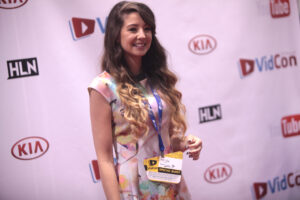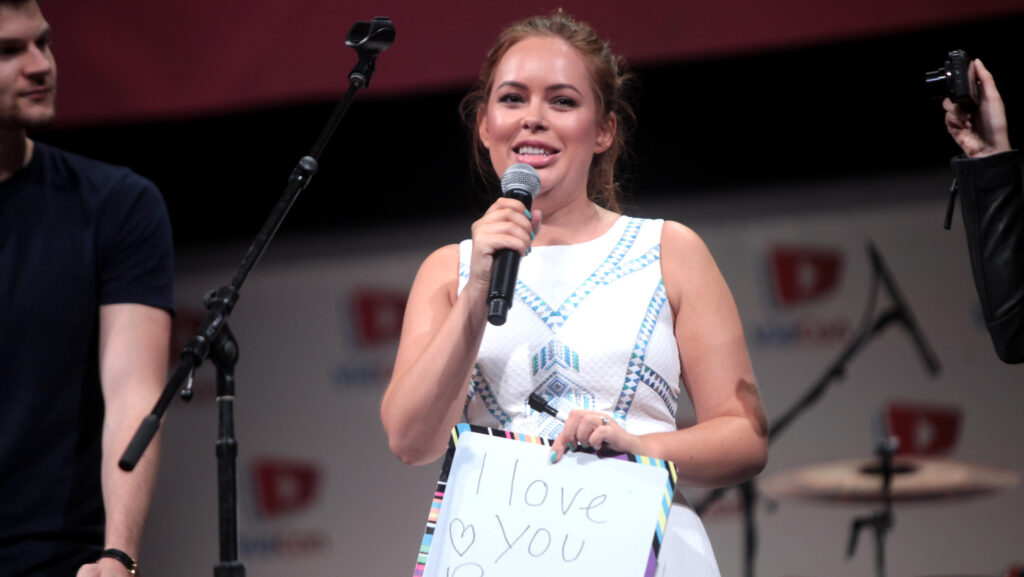Molly Wilson
The once integral YouTube genre of beauty vlogging has seen a decline in recent years. Once successful channels struggle to surpass viewer milestones, while others have disappeared altogether.
Beauty Blogger Beginnings
Michelle Phan, who started posting YouTube videos in 2007, was one of the first well-known beauty vloggers. Her videos consisted of makeup and hair tutorials, such as ‘Lady Gaga Poker Face Tutorial’ and ‘Easy Ways to Use Liquid Liner’.
At the time, YouTube was far from a career path, as creators were not paid for their videos. But Michelle’s success on the platform proved there was money to be made from social media.
In 2010, Michelle became Lancôme’s official video makeup artist. A few years later, in 2013, she launched her own line: EM Cosmetics. In 2015, she made it on to Forbes’ 30 Under 30 List.
Today, her channel still has 8.69 million subscribers and she continues to post. However, her recent videos average 200k views — a dramatic decline compared to her early days on the platform.

The Height of the Beauty Vlogger
Another household name in the beauty community is Zoella. Now known by her real name, Zoe Sugg, she posted her first video to YouTube in 2009. Zoe posted makeup and fashion hauls, favourites videos, and daily vlogs, including her much-loved Vlogmas series.
With 10.7 million subscribers on her main channel, Zoella was once one of the most popular YouTubers on the website. She also released her own cosmetics line in 2014.
However, Zoe’s career has not come without controversy. When her first book Girl Online (2014) was published, it became the best-selling debut novel ever, overtaking the Harry Potter series. But she later received criticism for using a ghostwriter, something she and her team had denied.
“Many considered this incident to mark the end of her success”
In 2017, she released an infamous £50 advent calendar. She received criticism for the price of the calendar compared to the 12 gifts inside, including confetti, stickers, and a cookie cutter. Many considered this incident to mark the end of her success, suggesting her fame had disconnected Zoe from her audience.
As of today, Zoe still posts daily vlogs but no longer makes beauty videos.
While these creators opened the door for more beauty vloggers to make a name for themselves on YouTube, their success has not come without consequences.
The Downfall of the Beauty Vlogger
James Charles posted his first YouTube video in 2015. He reached millions of followers soon after a tweet, which featured the makeup for his high school yearbook photo, went viral. In 2016, he became the first male brand ambassador for CoverGirl. James went on to work with Kim Kardashian, Kylie Jenner, and Doja Cat, among other celebrities.
However, the downfall of James Charles’ reputation started in 2019. Fellow beauty vlogger, Tati Westbrook, uploaded the now iconic video ‘Bye Sister’, accusing James of disloyalty to her brand by posting her competitor on Instagram.
He was also accused of pursuing a straight man in an aggressive manner, despite being aware of his sexuality.
https://twitter.com/jamescharles/status/772883439733338112
James Charles became the first YouTuber to lose a million subscribers in 24 hours. Despite the initial excitement and much back and forth between the pair, James’ following never fully recovered. He has 23.9 million subscribers to his YouTube channel, but his recent videos only average one million views.
The drama, nicknamed Dramageddon, caused the beauty community to gain a reputation for toxicity. One by one, viewers stopped watching once-popular vloggers.
However, there is another significant contributor to the disappearance of beauty videos from YouTube.
The TikTok Generation
Since TikTok exploded onto the scene, short-form content is preferred online. Rival platforms YouTube and Instagram even attempted to copy the app’s success by releasing YouTube Shorts and Instagram Reels. As a result, people are less likely to watch a 10-minute tutorial on YouTube in favour of a three-minute Get Ready With Me on TikTok.
i love tiktok but it really destroyed long form content. no one vlogs on youtube anymore and i miss it!! i don’t want a 30 second look into your life, i need a full 40 minute zoella-style edit to watch whilst i do my makeup in the morning
— lil h (@hayleyrFoto) June 1, 2023
Today, YouTube is home to long-form content, such as video essays and commentary, instead of beauty bloggers. This is another consequence of Dramageddon, as popular commentary channels share their opinions about online drama.
‘Get Ready With Me’ videos and product reviews are still popular on beauty TikTok. Big names include Abby Roberts, Meredith Duxbury, and Mikayla Nogueira, many of whom are not without their own controversies. These creators have over 10 million followers, which is no longer as impressive as it was when Zoella hit the same milestone.
@mikaylanogueira I love this eyeshadow look! Brown shadows always slay. #makeup #beauty #newmakeup
The TikTok algorithm makes their content much easier to discover. With the new addition of TikTok Shop, content creators can be commissioned to make paid videos.
While YouTube is oversaturated with huge channels, TikTok is the new and cool platform for those starting out. With the loss of trust for famous vloggers and the rise of short-form content, TikTok may be the reason why traditional beauty vlogs feel like a thing of the past.
READ MORE:
-
BEIGE FLAGS: LOVING THE LITTLE THINGS
-
‘CYBERCHONDRIA’: TIKTOK AND MENTAL HEALTH SELF-DIAGNOSIS
-
THE #HYPERFEMININE TIKTOK MOVEMENT AS A RESPONSE TO TOXIC MASCULINITY
Featured image courtesy of Gage Skidmore via Flickr. No changes have been made to this image. Image license found here.

